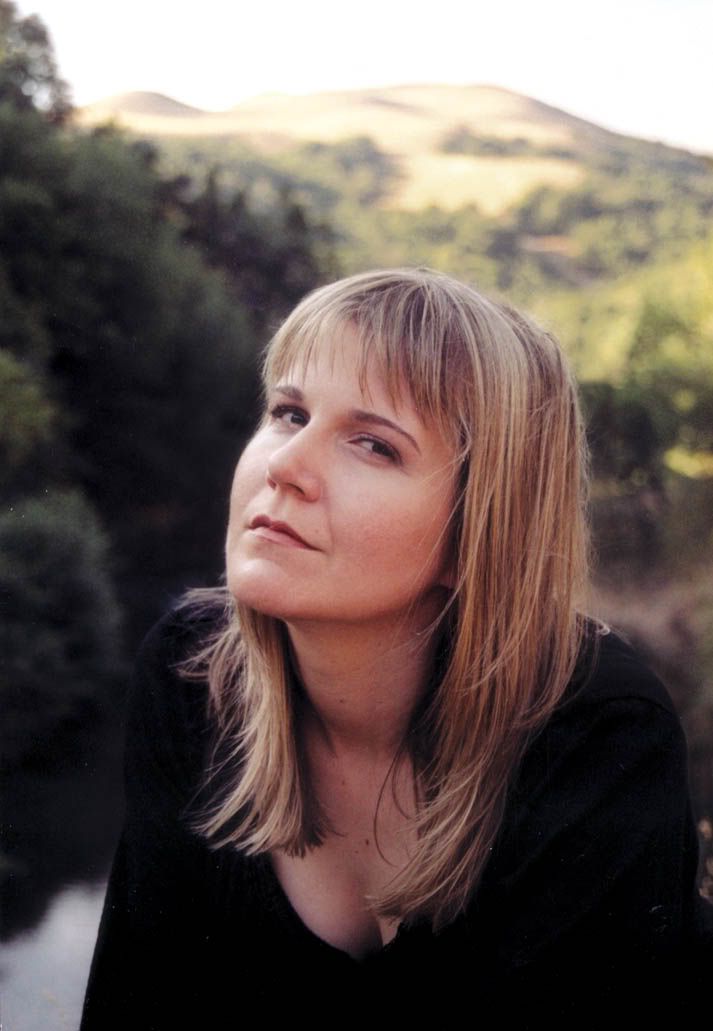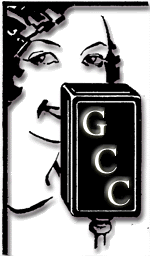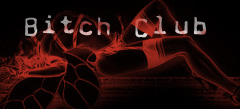Blame It On Your Third Grade Teacher
Well, we're back for another installment of Tactical Tuesday!

Please welcome Fluster McKnucklesby, our Tactical Tuesday Rodent, who will help us elucidate Part Two of Writing Effective Dialogue, or, as I like to call this part:
And that's it from me today. I think. Unless...
"Did I forget anything about dialogue?" she whined forgetfully.

Please welcome Fluster McKnucklesby, our Tactical Tuesday Rodent, who will help us elucidate Part Two of Writing Effective Dialogue, or, as I like to call this part:
Blame It on Your Third Grade Teacher
I happened to be in a third grade classroom the other day... not my son's or daughter's, thank goodness. On the wall was a large poster with words like:
And beneath it was one of my favorite words. A perfectly good, sweet and useful word. A circle had been drawn around it and a line drawn through the circle, like on a No Smoking sign. That word was....
I nearly cried.
In fact, I had to bite my lip and stand outside for a moment. So this is where it comes from, I thought. Those Horrid Icky Embarrassingly Awful To Read and To Catch Yourself Writing dialogue tags.
What's wrong with the good old word "said," I say?
NOTHING!
Strong dialogue needs no other attribution than SAID. If you're using words like hollered, hissed ( impossible to do with dialogue that doesn't contain the 's' sound, hmmmm?), whimpered, murmured, laughed (and it's hard to "laugh" ANY piece of dialogue... TRY IT. Try to "laugh" the phrase, "Try it"), snarled (see "laughed"), mumbled, blah blah blah.....
STOP. DROP your pencil. ROLL your dialogue through your head. And make WHAT your character says more compelling. Don't rely on cheesy dialogue tags to carry the weight and meaning that the DIALOGUE ITSELF is supposed to carry.
In fact, avoiding "said" and replacing it with silly verbs can become really irritating. Witness the example given by bestselling thriller writer David Morrell, in a question he answered for me on the Backspace Writing Forums:
Isn't that horribly distracting, even laughable? These verbs are the mark of an amateur. AVOID THEM.
Another annoying trend in dialogue tags is the adverbial dialogue tag.
Oh, COME ON. Again... THE DIALOGUE needs to carry the "iciness." Barring that, the heroine's ACTIONS should show her iciness. Not a two-bit adverb plopped at the end of the sentence. Remember the jokes called "Tom Swifties"?
(And many more are available here...)
In short: Don't "Tom Swifty" your dialogue.
OH... and most egregious of all, PLEASE don't have your hero say something "cockily" during a love scene. Please. That is, unless you're writing a comedy.
On THAT awkward note, I promised I would fucking get into the goddamned profanity issue today. Simply, here it is:
DIALOGUE MUST FIT THE CHARACTER.
This was true in my own novel, The Bitch Posse. I don't use four-letter words nearly as often as my three characters, but their diction demanded that I use them quite a lot. I remained loyal to the way my girls thought and spoke. BE TRUE TO YOUR CHARACTERS. There are some characters in fiction who'd never use four-letter words. Let your characters speak to you, and transcribe what you hear.
One of the most memorable novels I've read in recent years is Trainspotting by Irvine Welsh. The novel chronicles the experiences of heroin users in Edinburgh, Scotland. Every other word in that novel, I swear (hee hee), is "cunt." When I had finished reading it, I headed to pick up the kids at school and nearly greeted my friends with "Fuck off, you doss cunts!" in the most AFFECTIONATE way possible. The dialogue just rubs off on you.
Director of the stage adaptation of Trainspotting, Harry Gibson, knew about the difficulties the profanity might create: "BBC Radio asked me ages ago to do an adaptation of Trainspotting. Then they looked at it. When they realised that landing on 'Planet Trainspotting' means you can't walk for two lines without bumping into a cunt, they bottled."
All right? If your character uses the word "cunt" a lot... SHE USES THE WORD "CUNT" A LOT, SO SHE SHOULD SAY IT A LOT. A WHOLE FUCKING LOT.
This is off topic, but amusing, so here you go...

Which Trainspotting Character Are You?
Remember, dialogue cuts both ways. You don't have to use "cunt" or "fuck" every other word, but you don't have to sanitize your dialogue for your Aunt Ethel, either. Just remember... It's all about the character!I happened to be in a third grade classroom the other day... not my son's or daughter's, thank goodness. On the wall was a large poster with words like:
giggled
exclaimed
tittered
boomed
snarled
muttered
cried
snorted
exclaimed
tittered
boomed
snarled
muttered
cried
snorted
And beneath it was one of my favorite words. A perfectly good, sweet and useful word. A circle had been drawn around it and a line drawn through the circle, like on a No Smoking sign. That word was....
SAID.
I nearly cried.
In fact, I had to bite my lip and stand outside for a moment. So this is where it comes from, I thought. Those Horrid Icky Embarrassingly Awful To Read and To Catch Yourself Writing dialogue tags.
What's wrong with the good old word "said," I say?
NOTHING!
Strong dialogue needs no other attribution than SAID. If you're using words like hollered, hissed ( impossible to do with dialogue that doesn't contain the 's' sound, hmmmm?), whimpered, murmured, laughed (and it's hard to "laugh" ANY piece of dialogue... TRY IT. Try to "laugh" the phrase, "Try it"), snarled (see "laughed"), mumbled, blah blah blah.....
STOP. DROP your pencil. ROLL your dialogue through your head. And make WHAT your character says more compelling. Don't rely on cheesy dialogue tags to carry the weight and meaning that the DIALOGUE ITSELF is supposed to carry.
In fact, avoiding "said" and replacing it with silly verbs can become really irritating. Witness the example given by bestselling thriller writer David Morrell, in a question he answered for me on the Backspace Writing Forums:
"Jack, look out for the bomb!" Joe exploded.
Isn't that horribly distracting, even laughable? These verbs are the mark of an amateur. AVOID THEM.
Another annoying trend in dialogue tags is the adverbial dialogue tag.
"You'll never get away with it," she said icily.
Oh, COME ON. Again... THE DIALOGUE needs to carry the "iciness." Barring that, the heroine's ACTIONS should show her iciness. Not a two-bit adverb plopped at the end of the sentence. Remember the jokes called "Tom Swifties"?
"Wow, that sure is a handsome man over there!" Tom said gaily.
"I am not a Christian!" Tom said crossly.
"This is just like a fairy tale," Tom said grimly.
"Give me some more macaroni and cheese, and I'll tell you," Tom said craftily.
"I am not a Christian!" Tom said crossly.
"This is just like a fairy tale," Tom said grimly.
"Give me some more macaroni and cheese, and I'll tell you," Tom said craftily.
(And many more are available here...)
In short: Don't "Tom Swifty" your dialogue.
OH... and most egregious of all, PLEASE don't have your hero say something "cockily" during a love scene. Please. That is, unless you're writing a comedy.
On THAT awkward note, I promised I would fucking get into the goddamned profanity issue today. Simply, here it is:
DIALOGUE MUST FIT THE CHARACTER.
This was true in my own novel, The Bitch Posse. I don't use four-letter words nearly as often as my three characters, but their diction demanded that I use them quite a lot. I remained loyal to the way my girls thought and spoke. BE TRUE TO YOUR CHARACTERS. There are some characters in fiction who'd never use four-letter words. Let your characters speak to you, and transcribe what you hear.
One of the most memorable novels I've read in recent years is Trainspotting by Irvine Welsh. The novel chronicles the experiences of heroin users in Edinburgh, Scotland. Every other word in that novel, I swear (hee hee), is "cunt." When I had finished reading it, I headed to pick up the kids at school and nearly greeted my friends with "Fuck off, you doss cunts!" in the most AFFECTIONATE way possible. The dialogue just rubs off on you.
Director of the stage adaptation of Trainspotting, Harry Gibson, knew about the difficulties the profanity might create: "BBC Radio asked me ages ago to do an adaptation of Trainspotting. Then they looked at it. When they realised that landing on 'Planet Trainspotting' means you can't walk for two lines without bumping into a cunt, they bottled."
All right? If your character uses the word "cunt" a lot... SHE USES THE WORD "CUNT" A LOT, SO SHE SHOULD SAY IT A LOT. A WHOLE FUCKING LOT.
This is off topic, but amusing, so here you go...

Which Trainspotting Character Are You?
And that's it from me today. I think. Unless...
"Did I forget anything about dialogue?" she whined forgetfully.








<< Home